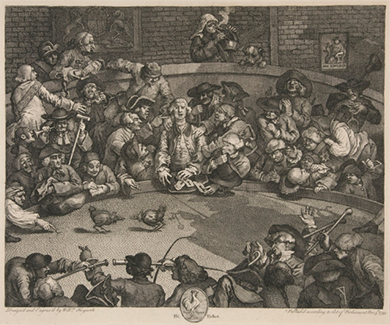| << Chapter < Page | Chapter >> Page > |
The representatives at the First Continental Congress created a Continental Association to ensure that the full boycott was enforced across all the colonies. The Continental Association served as an umbrella group for colonial and local committees of observation and inspection. By taking these steps, the First Continental Congress established a governing network in opposition to royal authority.
Visit the Massachusetts Historical Society to see a digitized copy and read the transcript of the First Continental Congress’s petition to King George.
In her book Toward A More Perfect Union: Virtue and the Formation of American Republics , historian Ann Fairfax Withington explores actions the delegates to the First Continental Congress took during the weeks they were together. Along with their efforts to bring about the repeal of the Intolerable Acts, the delegates also banned certain activities they believed would undermine their fight against what they saw as British corruption.
In particular, the delegates prohibited horse races, cockfights, the theater, and elaborate funerals. The reasons for these prohibitions provide insight into the state of affairs in 1774. Both horse races and cockfights encouraged gambling and, for the delegates, gambling threatened to prevent the unity of action and purpose they desired. In addition, cockfighting appeared immoral and corrupt because the roosters were fitted with razors and fought to the death ( [link] ).

The ban on the theater aimed to do away with another corrupt British practice. Critics had long believed that theatrical performances drained money from working people. Moreover, they argued, theatergoers learned to lie and deceive from what they saw on stage. The delegates felt banning the theater would demonstrate their resolve to act honestly and without pretence in their fight against corruption.
Finally, eighteenth-century mourning practices often required lavish spending on luxury items and even the employment of professional mourners who, for a price, would shed tears at the grave. Prohibiting these practices reflected the idea that luxury bred corruption, and the First Continental Congress wanted to demonstrate that the colonists would do without British vices. Congress emphasized the need to be frugal and self-sufficient when confronted with corruption.
The First Continental Congress banned all four activities—horse races, cockfights, the theater, and elaborate funerals—and entrusted the Continental Association with enforcement. Rejecting what they saw as corruption coming from Great Britain, the delegates were also identifying themselves as standing apart from their British relatives. They cast themselves as virtuous defenders of liberty against a corrupt Parliament.
In the Declaration and Resolves and the Petition of Congress to the King, the delegates to the First Continental Congress refer to George III as “Most Gracious Sovereign” and to themselves as “inhabitants of the English colonies in North America” or “inhabitants of British America,” indicating that they still considered themselves British subjects of the king, not American citizens. At the same time, however, they were slowly moving away from British authority, creating their own de facto government in the First Continental Congress. One of the provisions of the Congress was that it meet again in one year to mark its progress; the Congress was becoming an elected government.
The First Continental Congress, which comprised elected representatives from twelve of the thirteen American colonies, represented a direct challenge to British authority. In its Declaration and Resolves, colonists demanded the repeal of all repressive acts passed since 1773. The delegates also recommended that the colonies raise militias, lest the British respond to the Congress’s proposed boycott of British goods with force. While the colonists still considered themselves British subjects, they were slowly retreating from British authority, creating their own de facto government via the First Continental Congress.

Notification Switch
Would you like to follow the 'U.s. history' conversation and receive update notifications?